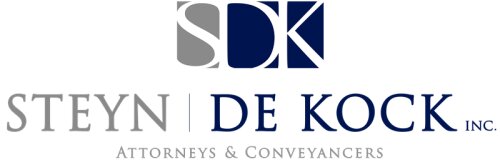Best ADR Mediation & Arbitration Lawyers in Welkom
Share your needs with us, get contacted by law firms.
Free. Takes 2 min.
List of the best lawyers in Welkom, South Africa
South Africa ADR Mediation & Arbitration Legal Articles
Browse our 1 legal article about ADR Mediation & Arbitration in South Africa written by expert lawyers.
- Resolving Cross-Border Commercial Disputes in South Africa
- Mandatory Consideration: Uniform Rule 41A requires all litigants in the South African High Court to consider mediation before proceeding to trial, making it a standard step in cross-border disputes. Enforceability: Settlements reached through mediation can be made an order of the court, giving them the same legal weight and enforcement... Read more →
About ADR Mediation & Arbitration Law in Welkom, South Africa
Alternative Dispute Resolution (ADR) is an umbrella term for processes like mediation and arbitration used to resolve legal disputes outside of traditional court litigation. In Welkom, South Africa, ADR is often preferred for its efficiency, privacy, and cost-effectiveness compared to formal court proceedings. Mediation involves a neutral third party helping disputing parties negotiate a mutually agreeable settlement, while arbitration involves a neutral arbitrator (or panel) who listens to both sides and makes a binding decision. ADR is commonly used in commercial, labour, family, and even community disputes throughout Welkom and the broader Free State Province.
Why You May Need a Lawyer
While ADR aims to simplify dispute resolution, legal complexities can still arise. You might need a lawyer in cases such as:
- Contractual or business disputes where large sums or valuable interests are at stake
- Employment or labour matters requiring clarity on legal rights and fair procedures
- Family or divorce-related disputes needing sensitivity and thorough understanding of family law
- Community or property-related disagreements, including sectional title or municipal matters
- Interpreting and drafting effective settlement or arbitration agreements
- When enforcement of an ADR agreement or award is necessary through the courts
Local Laws Overview
South Africa's support of ADR is embedded in statutes such as the Arbitration Act 42 of 1965, the Labour Relations Act 66 of 1995 (for labour disputes), and the Children’s Act 38 of 2005 (for family mediation). In Welkom, these laws apply equally, and local courts encourage ADR before litigation, especially in commercial and family matters. The Commission for Conciliation, Mediation and Arbitration (CCMA) is a statutory body that handles many workplace disputes using ADR processes. Additionally, private mediation and arbitration services, regulated by these laws and sometimes industry-specific rules, operate in Welkom and the Free State Province. Agreements and awards made in accordance with these laws are generally binding and enforceable by local courts.
Frequently Asked Questions
What is the difference between mediation and arbitration?
Mediation is a negotiation process facilitated by a neutral mediator who helps the parties find common ground and reach a voluntary settlement. The mediator cannot impose a decision. Arbitration, on the other hand, is more formal: the arbitrator listens to both sides and makes a binding decision, much like a private judge.
Can I use ADR for any type of dispute?
ADR is suitable for most civil, commercial, employment, and family disputes. However, some matters, such as criminal cases or issues involving public policy, may not be resolved through ADR.
Is an ADR decision binding in Welkom?
An arbitration award is usually binding and enforceable in court. A mediated agreement is binding if formalised in writing and signed by both parties, and can be made an order of court if necessary.
Is a lawyer required to participate in ADR?
Having a lawyer is not compulsory but is highly advisable to ensure your rights are understood, agreements are well-drafted, and your interests are protected.
What is the process for starting mediation or arbitration?
Parties can agree to ADR in their contract or after a dispute arises. To start, they appoint a mediator/arbitrator (privately or via an institution like the CCMA for labour cases) and sign an agreement to mediate or arbitrate the dispute.
What happens if the other party refuses to participate?
ADR is a voluntary process unless previously agreed (for example, in a contract clause). If a party refuses, the dispute may need to proceed in court, although some courts may still encourage or order mediation before hearing the case.
How much does ADR cost in Welkom?
Costs vary depending on the nature of the dispute, the mediator or arbitrator's fees, and whether legal assistance is needed. Generally, ADR is cheaper than court litigation.
How long does ADR take compared to court proceedings?
ADR is generally faster, often resolving disputes within weeks or a few months, whereas court cases can take years due to backlogs and procedural delays.
Can I appeal an arbitration award?
Arbitration awards are final and binding with very limited rights of appeal. Challenges are usually only possible if there was misconduct, bias, or procedural irregularities.
How can I find a mediator or arbitrator in Welkom?
You can approach local law firms, the CCMA (for employment matters), or professional arbitration and mediation associations operating in the Free State. Lawyers can also recommend experienced practitioners.
Additional Resources
If you need help or more information about ADR mediation and arbitration in Welkom, consider these resources:
- The Commission for Conciliation, Mediation and Arbitration (CCMA): Handles most labour and employment disputes through ADR
- The Law Society of South Africa (LSSA): Offers guidance on ADR practitioners and legal representation
- South African Association of Mediators (SAAM): Provides mediation services and lists qualified mediators
- Welkom Magistrate’s Court: Can approve mediated agreements and provide guidance on local dispute resolution
- Local law firms in Welkom: Many have ADR experts or can refer you to professionals in the field
Next Steps
If you are facing a dispute or believe mediation or arbitration may help, consider the following action steps:
- Consult a local lawyer experienced in ADR to discuss your options and the best strategy for your case
- Review your contracts for any mediation or arbitration clauses that may dictate the process
- Contact an ADR institution or independent mediator/arbitrator to begin the process if parties agree
- Prepare documentation and evidence you'd present in mediation or arbitration (contracts, correspondence, etc.)
- Follow the guidance of your lawyer and the appointed mediator/arbitrator throughout the process
Lawzana helps you find the best lawyers and law firms in Welkom through a curated and pre-screened list of qualified legal professionals. Our platform offers rankings and detailed profiles of attorneys and law firms, allowing you to compare based on practice areas, including ADR Mediation & Arbitration , experience, and client feedback.
Each profile includes a description of the firm's areas of practice, client reviews, team members and partners, year of establishment, spoken languages, office locations, contact information, social media presence, and any published articles or resources. Most firms on our platform speak English and are experienced in both local and international legal matters.
Get a quote from top-rated law firms in Welkom, South Africa — quickly, securely, and without unnecessary hassle.
Disclaimer:
The information provided on this page is for general informational purposes only and does not constitute legal advice. While we strive to ensure the accuracy and relevance of the content, legal information may change over time, and interpretations of the law can vary. You should always consult with a qualified legal professional for advice specific to your situation.
We disclaim all liability for actions taken or not taken based on the content of this page. If you believe any information is incorrect or outdated, please contact us, and we will review and update it where appropriate.









